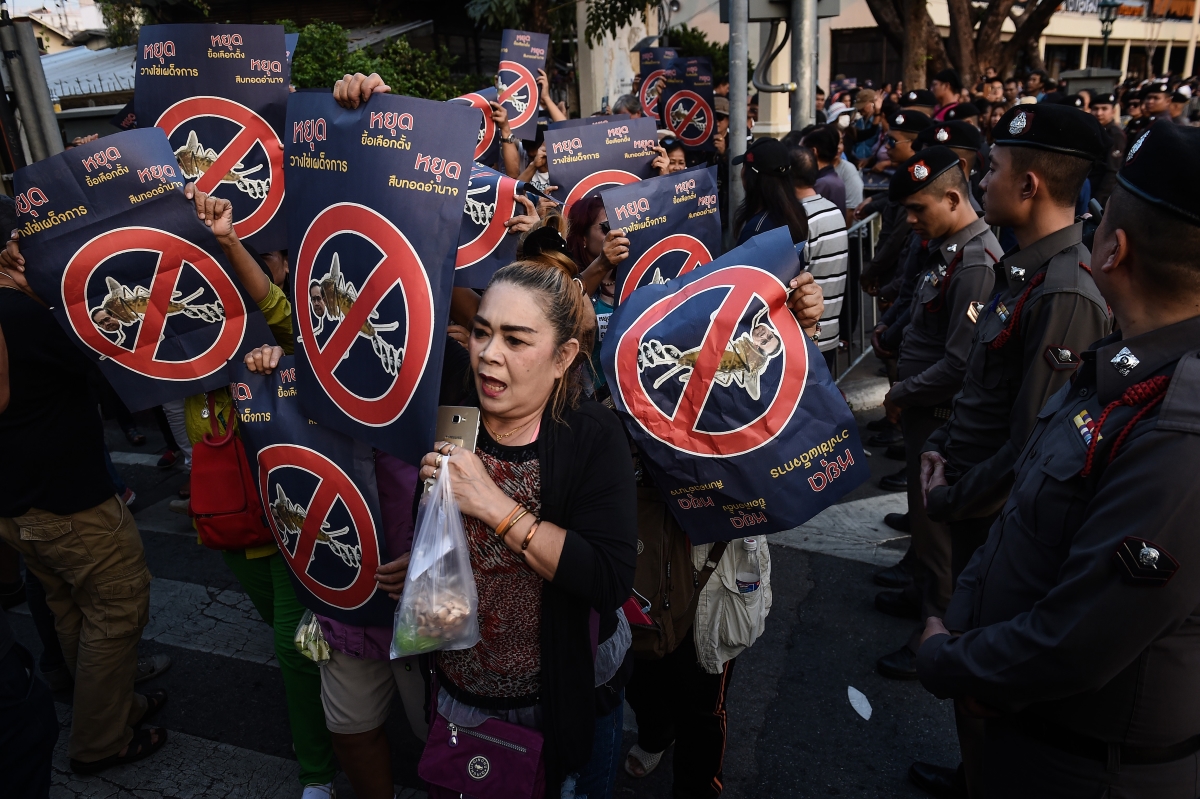A surprise surge in Thailand’s economic growth could sway the country’s military government to stick to a plan for fresh elections early next year.
Rebounding agricultural output and more traditional drivers such as exports and tourism helped propel gross domestic product growth to a five-year high of 4.8 percent last quarter. Deputy Prime Minister Somkid Jatusripitak said soon afterwards that political stability under the military administration had bolstered the economy.
The positive economic numbers ought to encourage the junta to hold elections as soon as possible, Thitinan Pongsudhirak, director of the Institute of Security and International Studies at Bangkok’s Chulalongkorn University, said in a telephone interview.
“Why postpone any longer? They should be able to exploit and capitalize on this, but they can’t,” said Thitinan. “They’re stuck in a catch-22 - they delay calling an election because they don’t think they can win, but the longer they delay, the less chance they have of winning.”
Former army chief Prayuth Chan-Ocha seized power in Thailand in May 2014 after a period of political unrest, pledging to restore stability before bringing back representative government. The current stretch of military rule is one of the longest since the 1970s.
Thai lawmakers expect the government to hold elections in early 2019, but the time-line has already been pushed back repeatedly. Last October, Prayuth said elections would be held by November this year.
Small protests held in Bangkok on Tuesday to mark four years of military rule and call for elections to be held this year were blocked by police, who detained several activist leaders.
The growth figures were positive, said Science and Technology Minister Suvit Maesincee at his office in Bangkok on Thursday.
"This is a good sign that our country has recovered from the social unrest a few years ago," Suvit said. "We still need fundamental change, so reforms have to continue. Thailand itself has a lot of endowment from the Gods. What we need is the management - the right policies, and management that can be applied for a certain period of time."
Growth acceleration
A jump in agriculture-sector production was the primary cause of the growth acceleration in the last quarter, said Rahul Bajoria, a senior economist at Barclays Bank Plc in Singapore, adding gross domestic product will probably climb more than 4 percent this year.
“The drivers of expansion are becoming broader with private consumption gradually improving and investments likely gathering pace,” said Bajoria. “Merchandise exports and tourism-related revenues will remain important growth drivers.”
The government is already trumping this as a success, Michael J. Montesano, senior counsellor at Vriens & Partners and a visiting research fellow at the Institute of Southeast Asian Studies in Singapore, said.
“One of the big stories since the 2014 elections is that a lot of those people the junta would need to court for votes when an election takes place don’t seem to have prioritized pocket book issues as much as in the past,” said Montesano. “Instead, security and stability seem to be counting for more.” – Bloomberg
